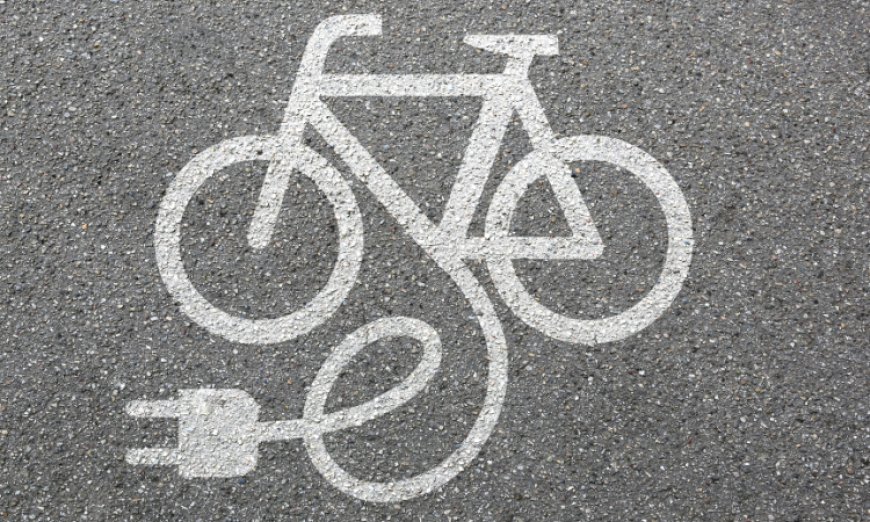Europe E-Bike Market: A Comprehensive Analysis
Europe E-Bike Market

The Europe e-bike market has witnessed significant growth in recent years, driven by a combination of technological innovations, environmental consciousness, and supportive government policies. In 2023, the market reached a value of nearly USD 25.63 billion and is expected to grow at a CAGR of 14.6% from 2024 to 2032, reaching approximately USD 94.35 billion by 2032. This blog explores the key factors contributing to this growth, the major trends shaping the market, and the competitive landscape.
Key Drivers of Market Growth
Innovative Product Features
The demand for e-bikes in Europe is fueled by the innovative features they offer. These include fully integrated batteries and drives, appealing designs, and the use of high-quality materials. Manufacturers are continuously improving the aesthetics and functionality of e-bikes to meet the diverse needs of European consumers.
Environmental Consciousness
As environmental awareness grows, more consumers are opting for eco-friendly transportation solutions. E-bikes offer a sustainable alternative to traditional vehicles, reducing carbon emissions and promoting green mobility. The increasing preference for e-trekking and e-MTB bikes among environmentally conscious consumers is driving market growth.
Government Support
Favorable government regulations, such as the EU Directive 2002/24/EC, encourage the adoption of electric bikes by providing incentives and tax credits. These initiatives aim to promote electric mobility as a viable solution to reduce pollution and traffic congestion in urban areas.
Rising Fuel Costs
The increasing cost of fuel is prompting consumers to seek cost-effective transportation alternatives. E-bikes offer an economical solution for daily commuting, making them an attractive option for budget-conscious individuals.
Trends and Developments
Growth in E-Cargo Bikes
The demand for e-cargo bikes is rising as logistical businesses in urban areas adopt them as replacements for delivery vans. E-cargo bikes offer advantages such as lower operational costs, reduced environmental impact, and the ability to navigate congested city streets more efficiently. Individuals also find e-cargo bikes beneficial for transporting goods and children.
Expansion of E-Mobility Solutions
E-mobility solutions are gaining traction in Europe, with countries like France and the United Kingdom witnessing robust growth in e-bike adoption. The trend towards e-mobility is driven by a combination of technological advancements, government incentives, and a growing preference for sustainable transportation options.
Increasing Popularity of Personal Mobility
The demand for personal mobility solutions is on the rise, driven by urbanization and the need for convenient transportation. E-bikes offer a practical solution for short-distance travel, providing flexibility and ease of use.
Commercial Sector Growth
The expanding commercial sector in Europe is supporting the use of e-bikes in logistics and delivery services. E-bikes are particularly advantageous in urban areas where parking and congestion are major challenges.
Recent Developments
Riese & Müller GmbH
In February 2024, Riese & Müller GmbH launched a new entry-level cargo bike model with a Bosch performance line motor named Carrie. This model offers reliable assistance with 75 Nm of torque and the capability to carry an additional 27 kg with the MIK system when a child seat is fitted.
Mate's E-Cargo Bike Launch
In December 2022, Mate announced the launch of its new e-cargo bike with an SUV model in the UK and Europe. Made with 90% recycled aluminum, this bike serves as an alternative to cars, aligning with the growing trend of sustainable transportation.
UTurn Investments in 3T
In December 2022, UTurn Investments, an independent family fund company, invested in 3T to support the growth of the Italian bike brand. The investment aims to improve production capacity and expand the brand's presence in international markets.
Riese & Müller's Packster 70 Relaunch
In July 2022, Riese & Müller announced the relaunch of Packster 70, focusing on quality enhancements in the steering system. This relaunch underscores the company's commitment to maximum customer safety and innovation.
Market Segmentation
By Type
-
Pedal Assisted: Dominates the market due to rising health consciousness and the availability of versatile models with ergonomic designs and IoT integration for theft prevention.
-
Throttle Assisted: Meets consumers' needs for speed and efficiency while maintaining health benefits. Compliance with government regulations enhances their adoption.
By Drive Units
-
Mid-Drive Motors: Preferred for their balanced weight distribution and efficient power delivery.
-
Hub Motors: Popular for their simplicity and ease of maintenance.
By Battery
-
Lithium-Ion Battery: Favored for their high energy density and long lifespan.
-
Others: Includes various battery technologies catering to specific needs and preferences.
By Application
-
Urban: Popular for daily commuting and short-distance travel.
-
Trekking: Gaining traction among outdoor enthusiasts and adventure seekers.
-
Cargo: Increasingly used by logistics companies and individuals for transporting goods.
-
MTB: Preferred by mountain biking enthusiasts for off-road adventures.
-
Others: Includes various niche applications catering to specific consumer needs.
By Region
-
Germany: Leading the market with a high adoption rate of e-bikes as a sustainable transportation option.
-
United Kingdom: Witnessing growth due to government incentives and increasing environmental awareness.
-
France: Benefiting from government grants and long-term rental services supporting e-bike adoption.
-
Italy: Experiencing growth due to investments in expanding production capacity and international market presence.
-
Spain: Seeing growth through innovative start-ups offering advanced e-bike technologies.
-
Switzerland, Sweden, The Netherlands, Others: Contributing to the overall market growth with increasing adoption rates and supportive infrastructure.
Competitive Landscape
Accell Group
Headquartered in the Netherlands and founded in 1998, Accell Group is a leading company in the European e-bike market. It offers a diverse range of e-bikes under brands such as Koga, Winora, Sparta, Cargon, and Lapierre, targeting various market segments.
Riese & Müller GmbH
Riese & Müller GmbH is known for manufacturing premium e-bikes, e-cargo bikes, and folding bikes. The company's focus on application-oriented product development and innovative e-bike technology has positioned it as a key player in the market.
Powabyke UK Ltd
Established in 1888 and headquartered in the UK, Powabyke UK Ltd offers a wide range of e-bikes featuring lightweight alloy frames and powerful lithium battery technology. Its portfolio includes models like Sinope Step-Through Hybrid 28″ 14ah 85nm, La Rue, and Pulze Ladies Electric Bike.
QWIC
Founded in 2006 and based in the Netherlands, QWIC develops, manufactures, and sells innovative electric bicycles for urban commuters. With over 750 sales and service points across Europe, QWIC offers e-bikes under segments like Adventure, Comfort, Performance, and Urban.
Other Key Players
Kalkhoff Werke GmbH and other companies contribute to the competitive landscape of the Europe e-bike market by offering diverse products and solutions.
Regional Market Analysis
Germany
E-bikes are the most popular type of electric transportation in Germany, serving as sustainable transportation and a form of exercise and recreation. In 2022, 48% of households owned electric bikes, reflecting the growing preference for affordable and sustainable mobility solutions.
France
The French government announced incentives of up to USD 4073 in August 2022 to encourage electric bike purchases, particularly for lower-income households in low-emission urban zones. This initiative supports active mobility and pollution reduction. Long-term rental services like Véligo Location further promote e-bike adoption.
Spain
The presence of bike-sharing services and e-bike manufacturers is driving market growth in Spain. Innovative start-ups like Rayvolt offer aesthetic e-bikes with advanced technologies, high efficiency, and features like regenerative braking.
The Europe e-bike market is poised for robust growth, driven by a combination of technological innovations, environmental consciousness, and supportive government policies. As consumers increasingly opt for sustainable and efficient transportation solutions, e-bikes are set to play a pivotal role in shaping the future of mobility in Europe. With major players investing in research and development, the market is expected to witness continued innovation and expansion, offering diverse options for consumers across the region.
What's Your Reaction?
 Like
0
Like
0
 Dislike
0
Dislike
0
 Love
0
Love
0
 Funny
0
Funny
0
 Angry
0
Angry
0
 Sad
0
Sad
0
 Wow
0
Wow
0



















































